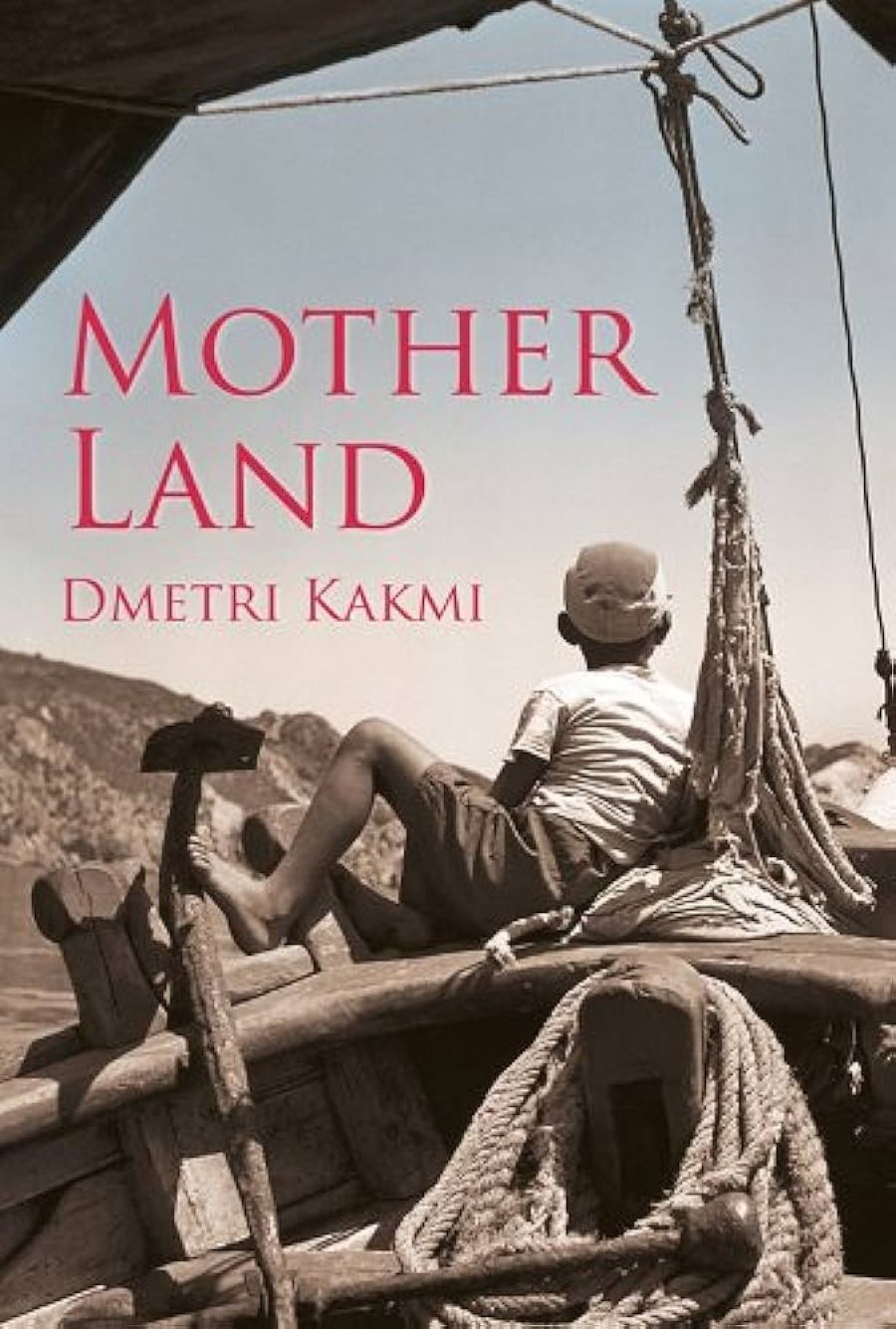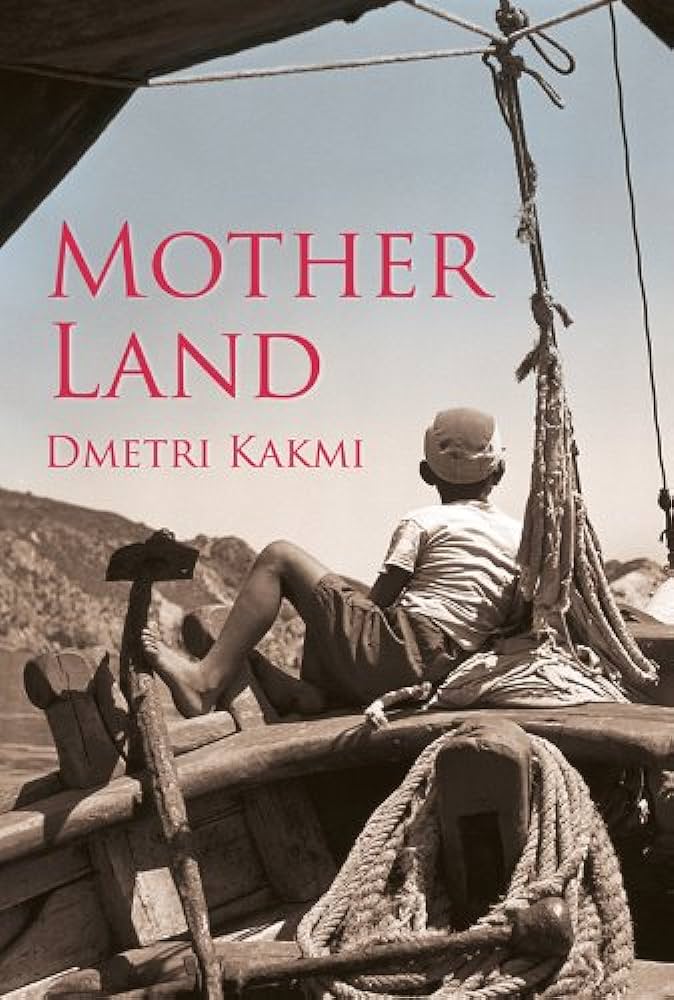
- Free Article: No
- Contents Category: Memoir
- Review Article: Yes
- Article Title: Worlds beyond reckoning
- Online Only: No
- Custom Highlight Text:
Mother Land is a vibrant and charming yet sombre and brutal account of Dmetri Kakmi’s childhood on the Aegean island of Tenedos, now known by its Turkish name of Bozcaada. The book opens with the adult ‘Dimitri’, accompanied by his Turkish friend Sinan, standing on the mainland and surveying through binoculars places he has not seen for thirty years: ‘Three islets sit low on the water ... As a boy, I used to be captivated by their aloofness and solitude. When I’d had enough of people, I yearned to build a hut and live on one of them, alone, separate and untouched by a world that, even at that age, seemed capricious and delinquent beyond reckoning.’
- Book 1 Title: Mother Land
- Book 1 Biblio: Giramondo, $29.95 pb, 280 pp
- Book 1 Cover Small (400 x 600):

- Book 1 Cover (800 x 1200):

In 1969, eight-year-old Dimitri (or Dimitros) hovers prematurely between childhood’s simplicities and adulthood’s realities. A thoughtful, sensitive boy, Dimitri roams the hills and the town accompanied by his dog, Byron, and luxuriates in the affection of family and friends. Dimitri possesses a growing awareness of how harsh everyday life is on undeveloped Tenedos. He experiences first-hand the animosity that exists between the ruling Turks and Greeks like him and his family, a tension that leads them to decamp for Australia. This mixed portrait of island life provides Mother Land with energy, purpose and pathos.
Central to Dimitri’s life are his immediate family: his parents, little sister Electra, his dog and the family’s donkey. Life on Tenedos is basic: Dimitri’s family have no running water or electricity, and the toilet is a hole in the ground a few steps from the back door. They shift between the town in winter and the country estate in summer. Dimitri’s barely literate father is a fisherman and, on dry land, a drinker. His mother is an educated woman who pines for cosmopolitan Istanbul. Lured back to Tenedos to marry Dimitri’s father, eleven years her senior, she harbours a boiling resentment towards her provincial circumstances, her forced marriage and the indignation of being (as a Greek) a second-class citizen. At one point, she tells Dimitri he had an older brother who died as a baby, but later she denies it and Dimitri wonders if it is his own fantasy. As the political tension mounts, her combative nature gives way to a mixture of resignation and fear. Kakmi has fashioned a complex and quite stunning portrait of a woman who is desperate to engage with the world but who is stuck on a small island, with a radio her only salve.
Kakmi interweaves many disparate strands to form Mother Land: the joy of friendship is undercut by the brutality of prejudice; the rugged beauty of the island landscape, and the childhood pleasure of spying on the world from high up a tree, collide with the fierce wind, the frightening sea and the harshness of winter; the miracle of the moon landing is countered by Dimitri’s inglorious descent – half hilarious, half life-threatening – into a cesspit full of his family’s frozen excrement.
Kakmi’s forceful rejection of absolutes allows shades of grey to emerge; they resonate as forceful and convincing, not limp or equivocal. The narrator’s voice is a gently authoritative combination of childhood innocence and misperception, and an adult’s sharp but generous appraisal of himself and his world. Occasionally, the prose becomes slightly detail-laden, and some scenes seem constructed to make a political point or provide historical background. But these are minor and occasional flaws – elsewhere Kakmi seamlessly incorporates the brooding tensions between the Greek and Turkish islanders into the story.
Perhaps what is most distinctive about Mother Land is the way that aggression seems to spread through the island’s population – and the narrative – like a slow-acting virus. Violent incidents pile up. Dimitri’s father occasionally pummels his mother (the prose here is searing). She, in turn, takes her frustrations out on Dimitri. Dimitri and his friends throw stones at Turkish boys; later they break the windows of a Turkish woman’s house, although Dimitri is filled with shame. Dimitri’s teacher, a Turkish woman, wallops him about the ears when he fails to stand at the end of a Turkish patriotic song and call out ‘Long live Atatürk’s republic!’ Early one morning, the police arrest and beat Dimitri’s father, trying to make him confess to stealing a chicken. Such a heavy mood settles over the island and the narrative that it seems almost natural when Dimitri himself turns violent in astonishing fashion.
Included in the acknowledgments is this statement: ‘A fictional episode has been inserted into part three to facilitate the revelation of factual information gained over a period of years from different individuals, in a manner that makes dramatic sense and hopefully [sic] provides a satisfactory conclusion for the reader.’ Memoir as beautifully crafted as Mother Land inevitably enters the shared space between stylisation and invention. We can be grateful that Kakmi has reconstructed thoughts, events and dialogue, and that he has transformed fractured memories into a cohesive story. Nevertheless, his use of a ‘fictional episode’ might jar for readers who prefer to draw a line, however imperfect and contrived, between fiction and non-fiction. In any case, this final section of Mother Land, when the adult Dimitri returns to Tenedos, is marginally awkward and didactic – somehow too neat and tidy – compared to the rest of the story.
Still, Mother Land is a tremendous achievement, and a worthy addition to the growing list of quality memoirs published in Australia in recent years. Sometimes bleak, it is ultimately an affirmation of life and a celebration of a small island and its inhabitants.


Comments powered by CComment